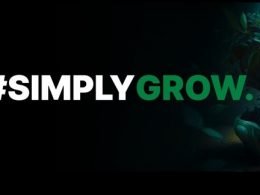Throughout 2020, the COVID-19 pandemic forced many across the developed world to shift their lives online. Major indices reflected the move as equities such as Zoom and Netflix grossly outperformed the S&P. Zoom exploded from about $67 in January to peak at about $559 in October. Similarly, Netflix provided a 50 percent increase in valuation over the year. Overall, investor sentiment expressed confidence in the tech sector despite the upheaval of “real” economies at the time.
Recent statistics help justify this rationale. The percentage of Americans teleworking all or most of the time rose from 20% to 71% throughout 2020. Supported by robust networking infrastructure, the move occurred as netizens continue to derive more meaningful experiences online. Social lives have long been shifting online and providing wellness benefits in the meantime. Hyper-connected consumers are also consuming more significant amounts of entertainment and social media online as they eschew traditional media.
PlayerMint is looking to leverage Cardano to help incentivize fun as individuals find themselves evermore connected. In short, they will accomplish their mission statement by integrating blockchain-based reward systems and marketplace infrastructure into popular gaming products.
Into the Metaverse
Markets and communities have thrived online despite the stresses of the pandemic.
This is in mind, its straightforward to suggest a new kind of world stage is developing across the internet. Given the creativity of individuals and the conveniences of digital platforms, this new experience is pushing expectations about what constitutes value and worthwhile activities.
Enter the Metaverse. Popularized recently by “Ready Player One,” this concept of a distinct digital universe with “meatspace” consequences is under active development. Piere Kicks, Venture Partner at Delphi Digital, framed the phenomenon concisely in a January 2021 essay. He defined the Metaverse as:
“A persistent, live digital universe that affords individuals a sense of agency, social presence, and shared spatial awareness, along with the ability to participate in an extensive virtual economy with profound societal impact.”
According to Kicks, the burgeoning Metaverse will rely upon self-sovereign ownership of in-game assets, new monetization mechanisms, cross-game economies, and a more significant role for digital identities.
Naturally, incentives and the open exchange of value are key components of this brave new world. Interestingly, rudimentary virtual economies have existed within gaming communities years before Bitcoin. As early as 2003, Second Life introduced Linden Dollars to its virtual world, and by 2005 a real-world currency exchange followed. In 2006, Anshe Chung became the first millionaire from activities on the platform. More recently, gaming monetization firm DMarket estimates the video game skin market to be worth $40 billion annually.
Nevertheless, Kicks believes that blockchain technology is imperative for the Metaverse to deliver on its revolutionary vision.
Play to Earn
The term “play to earn” appears to be experiencing something of a resurgence in 2021. The term describes the real-world impact of virtual economies and a growing culture that seeks to make gaming profitable for participants. However, digital marketplaces have been previously limited by terms of service agreements that, many claim, seek to assert control of in-game economic activities.
That said, NFT digital assets and blockchain technologies could bring about a phase transition and lead the space into an era of greater digital property rights and cross-platform commerce. Furthermore, the move may have already begun. Several news outlets have reported on Filipino residents earning Ethereum by playing the NFT game Axie Infinity. Since an internet connection and a phone are the only prerequisites, the income earned likely helped many survive the pandemic.
Such a robust use case implies greener pastures ahead. Startup PlayerMint is focused on ensuring that Cardano is a powerful platform in the space. Aidin Rankin Williams gave an elevator pitch to Ken Adams on his Interview KEWW channel. The piece provides an overview of the team’s motivation:
Briefly, Playermint is working to create a gaming economy centered around Discord. The system focuses on gameplay, rewarding quality performance. In this economy, high-quality performance is considered “work” and rewarded with the platfrom’s PMX tokens. PMX tokens can be traded or used to mint NFT digital assets.
PlayerMint’s Metaverse Toolkit
PlayerMint received funding in Fund 4 for their “Token System for Gamers” proposal. Their Fund 5 proposal encompasses the second phase of their project. The initiative looks to complement earlier efforts by supporting the development of an “economic toolkit” for the minting and trading of digital assets.
In more concrete terms, funds will be used to build a website for the PlayerMint protocol. The website will be central to the experience of gamers on the platform. Overall, the site will help users manage and mint tokens by connecting to their social accounts such as Discord or Twitch.
To interact with the platform, users will:
- Head to playermint.com
- Create a wallet and account
- Link social and gaming accounts
- Play
- Receive payouts of PMX for quality performance
- Use PMX to mint and trade NFTs
As voters are likely aware, the PlayerMint team is experienced. According to their proposal, they have worked with EMURGO, E3, IGN, and GamePro. Funds from the proposal will be given as payment to the Kromeon team for the development of the website. The number of unique addresses holding PMX, daily active addresses, NFT sales volume, and other similar metrics will be used as indicators of project success.
To find out more about the Metaverse toolkit proposal or the PlayerMint team and platform, please visit the attached link: https://cardano.ideascale.com/a/dtd/PlayerMint-P2-MetaVerse-Toolkit/350601-48088.










